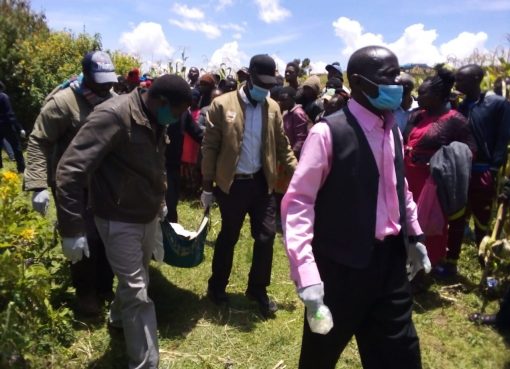The Eldoret-based Rift Valley Textile East Africa Company (Rivatex) has been tasked to produce 22million masks to be used by students when schools reopen.
The Education Cabinet Secretary (CS), Prof. George Magoha said this was one of the measures being taken by his ministry to deal with Covid-19 challenges when students resume learning.
Rivatex will be expected to produce the reusable masks tailored to cover the nose and mouth of the school going children, said the CS.
Schools are expected to reopen in September, with the ministry saying the Kenya Certificate of Primary Education, KCPE and Kenya Certificate Secondary Education, KCSE will likely be planned for February next year.
The CS however, said that school may remain closed beyond the expected reopening in September taking into consideration the increasing numbers of coronavirus positive cases.
“If the reopening is pushed to March or April at the latest the administration of national examinations will be disrupted as well as upsetting the school calendar and admissions to universities and tertiary institutions,” he observed.
For the ministry to confidently advise the President to reopen schools in September, the Ministry of Health must be satisfied that all the children, teachers and staff in schools will be safe, said the CS.
On the recent claims that 153,000 school going girls have been impregnated since schools closed in March, Prof. Magoha, who was on a tour of Rivatex on Monday morning, said he highly doubted the figures.
He disputed the report released by Kenya Health Information System last Wednesday following a survey wondering where it was carried out.
“I doubt the figures on the rate of pregnancies among school girls since the advent of Covid-19, that forced the closure of school three months ago, they look abnormal”, said the CS.
The CS urged parents to involve themselves more with their children’s lives by providing parental guidance and direction so that the future of the children are not ruined, adding that he has advocated the blocking of pornographic sites in the country because the majority of children view the sites that corrupt their immorality.
By Kiptanui Cherono




